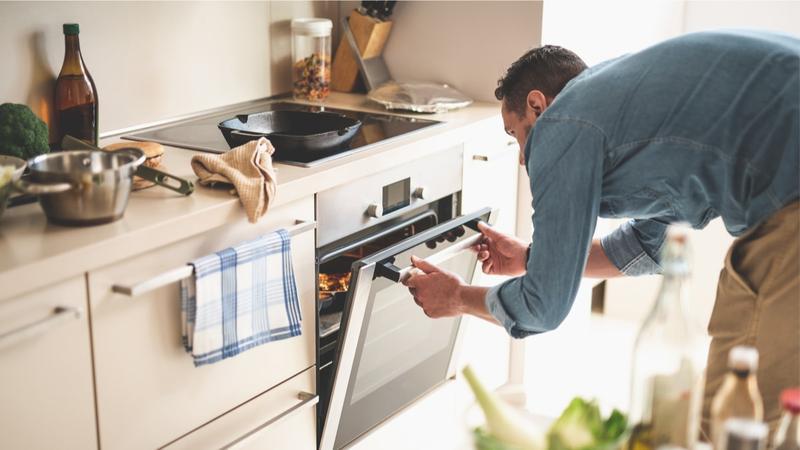Roughly 12,000 houses catch fire in Canada each year and fires originating from within the home are the most common culprit. And, sometimes the culprit is a household item we rely on every day, an appliance. From dishwashers to power bars, here are some of the household appliances we should be keeping an eye on and maintaining regularly to minimize the risk of fire.
8 Most Dangerous Household Appliances

Find the Best Car Insurance Rates
Compare car insurance quotes from 50+ providers in a single search. Start saving money today on the premiums you pay.
1. Dishwashers
Water and electricity are a dangerous mix. Dishwashers can cause fires if water enters the electrical parts of the appliance or the heating component becomes defective.
2. Refrigerators
Faulty wiring or broken compressors in refrigerators can cause fires to break out, ruining your food in the process.
3. Ovens
Keep a watchful eye on your dinner to make sure it doesn't burst into flames. Unattended cooking is one of the most common reasons for fires in the home. Also, be sure not to overuse your oven's self-cleaning feature, which uses extreme temperatures to burn off food. In some cases, the heat may slowly damage the oven's electronics systems, increasing the risk of malfunction.
4. Clothes Dryers
Dryers can start fires in multiple ways. If the thermostat breaks, the dryer can keep getting hotter without limits, ultimately causing a fire. Plus, if the heating element gets too hot, it will send scalding liquid metal into the dryer, causing your clothes to catch fire.
5. Toasters and Microwaves
Toasters, microwaves, and toaster ovens can all catch fire when circuit boards and wiring fail. Also, if you leave food cooking for too long, it may overheat and catch fire. Finally, always remember to avoid placing metal in the microwave. Metal heats up rapidly and can cause your microwave to explode.
6. Cooking Stoves
Stoves are one of the most common sources of house fires. Especially when grease is involved, cooktops can easily catch fire, scorching food, clothing, and other flammable materials. If you ever encounter a grease fire, resist the urge to throw water on the fire, which will only splatter the grease and make the fire worse. Instead, use a lid or another pot to smother the fire and turn off the burner.
7. Personal Electronics
Lithium-ion batteries in everyday household electronics like phones, e-readers, and laptops can catch fire if they're damaged or improperly charged. Be careful when buying aftermarket chargers—try to go with a reputable company. If you're outside of Canada, make sure you have a voltage converter to ensure you don't fry your electronics.
8. Power Bars
Electrical power bars allow you to charge multiple devices at once, but they can also be a fire hazard. To cut down on the risk of fire, keep power strips away from wet environments and avoid running cords under rugs or other furniture. Make sure to inspect your electrical wires periodically to confirm they aren't frayed, chewed, or otherwise damaged.
Home Safety Tips
To help protect your home from danger, follow these best practices:
- Keep fire extinguishers throughout the house in easy-to-access areas.
- Prepare a fire safety plan for your family.
- Keep portable escape ladders in upstairs rooms.
- Install smoke alarms in all rooms and routinely test the batteries.
- Unplug your appliances when you're not using them.
- Always stay in the kitchen when cooking.
Protect Your House with Home Insurance
No matter how much you prepare your home and avoid dangerous activities, sometimes the unexpected strikes. If your house catches fire, having a good home insurance policy can help get you back out your feet and cover your losses.
Our Users Say
2,247 reviews on TrustPilot. See some of the reviews here.
Fran
Curtis
Robert Clarkson
Vincenzina Perri
Keith
Dev
Georgia
Shirley Munro
Hoang Tran
Alnoor
Michael Benninger
Gene
D on
Robert
Remonia Thompson
Rich
Luis